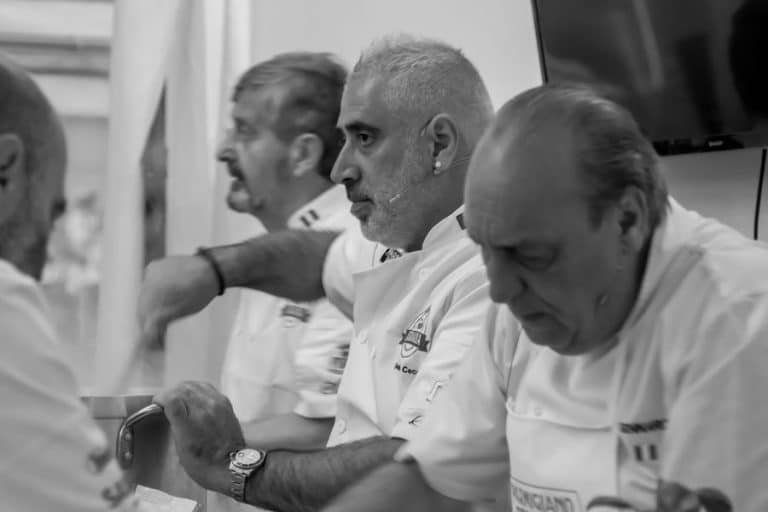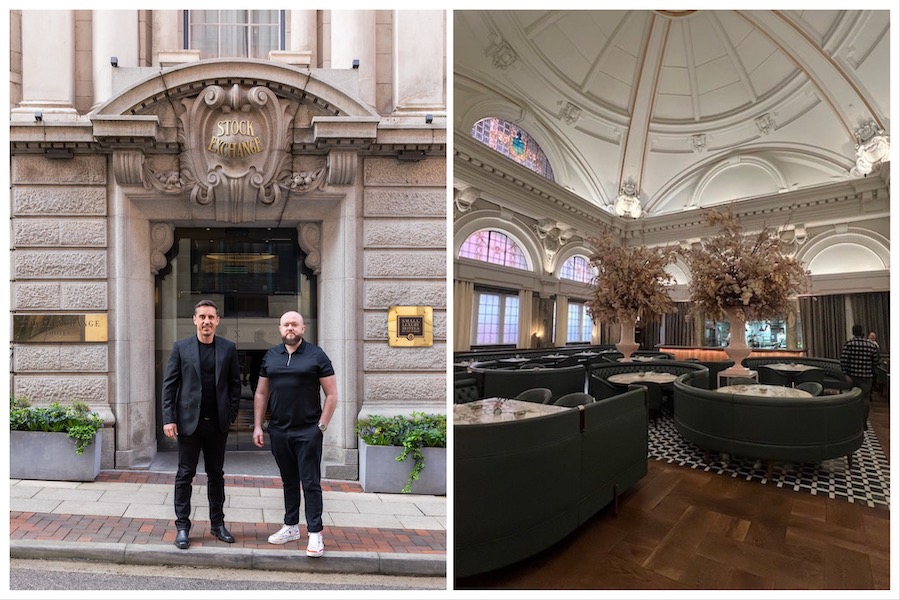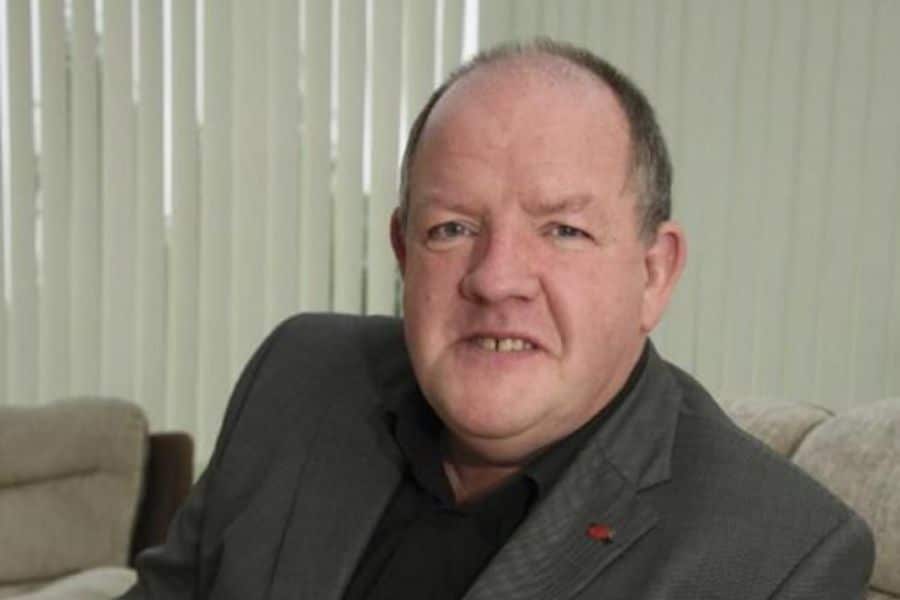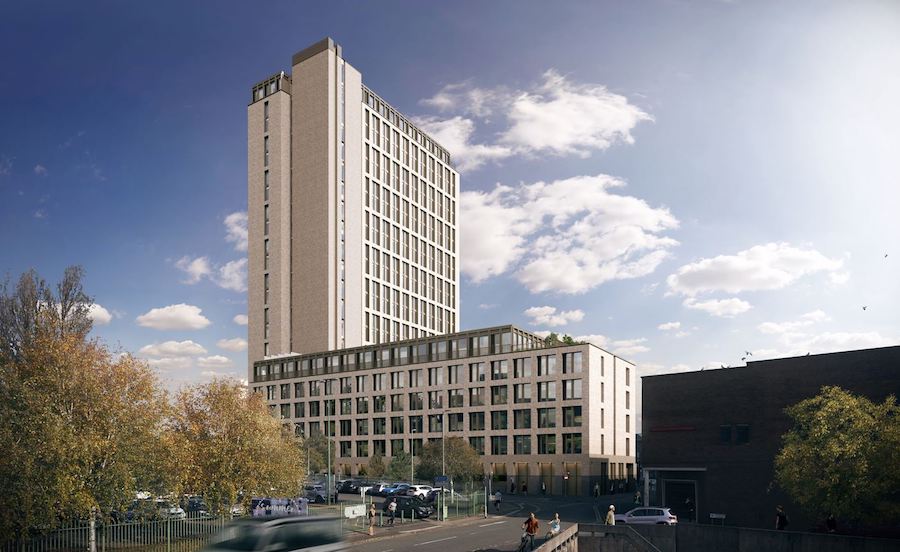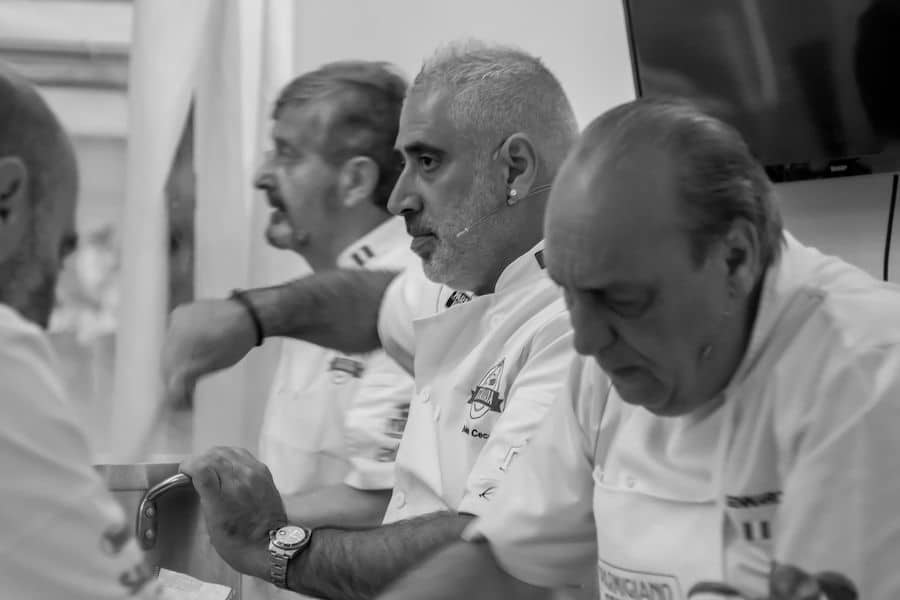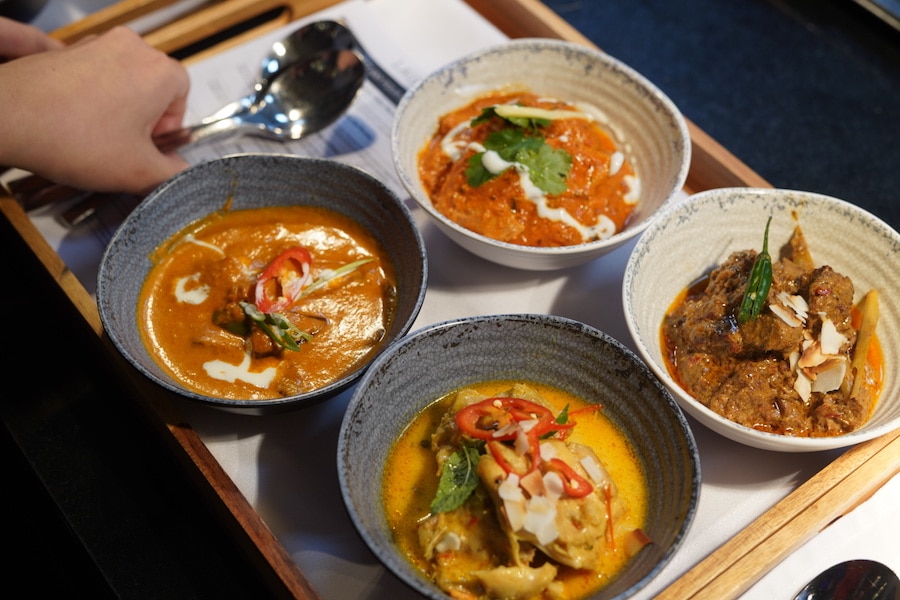Meet the woman campaigning to make Manchester a more sustainable and socially inclusive city
- Written by Louise Rhind-Tutt
- Last updated 2 years ago
- City of Manchester, Community, People

Plastic straws are used on average for 20 minutes, but can take over 400 years to degrade, a process that can release toxic chemicals into our environment. Up to seven million plastic coffee cups are thrown away every single day in the UK. And plastic waste is expected to rise by 20% in the next 20 years.
They’re shocking statistics, but last year Greater Manchester launched the first city-region wide plan to drive down avoidable single-use plastics.
The ambition is for Greater Manchester to ditch the scourge of single-use plastic by 2020, and PlasticFreeGM is asking businesses, organisations and individuals to pledge to take action to reduce avoidable single use plastics. So far over 330 businesses have signed up.
One woman supporting the initiative is Corin Bell. The force behind the city’s first waste food pay-as-you-feel restaurant Real Junk Food Manchester and waste food catering social enterprise Open Kitchen MCR, Corin is no stranger to sustainability in the city.
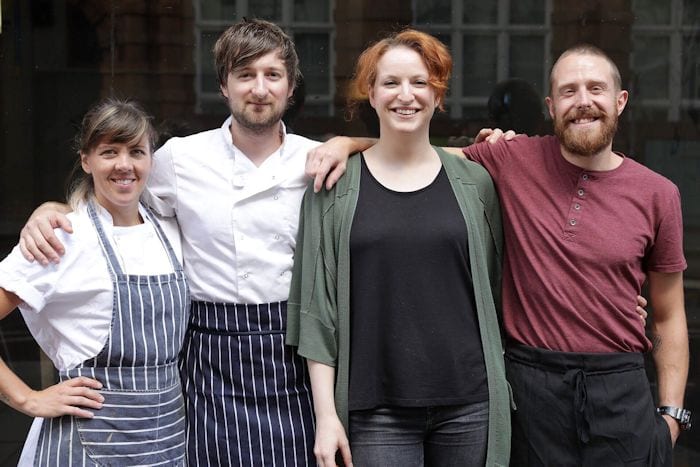
“I’m pathologically incapable of not sticking my nose in other people’s business,” laughs Corin when I ask how she got involved in the campaign.
While most people are aware of bars and restaurants around the city banning plastic straws thanks to “the Blue Planet effect”, there’s much more we can do, she believes.
“There is a joke that straws are like a gateway drug in terms of sustainability,” says Corin. “You get people hooked with the straws, and then they realise how much more there is to do.
“Straws are nice and easy, but they’re definitely not the answer. They’re not going to save the world. But it’s a really simple action that a lot of businesses are willing to take, and it doesn’t cost that much.”
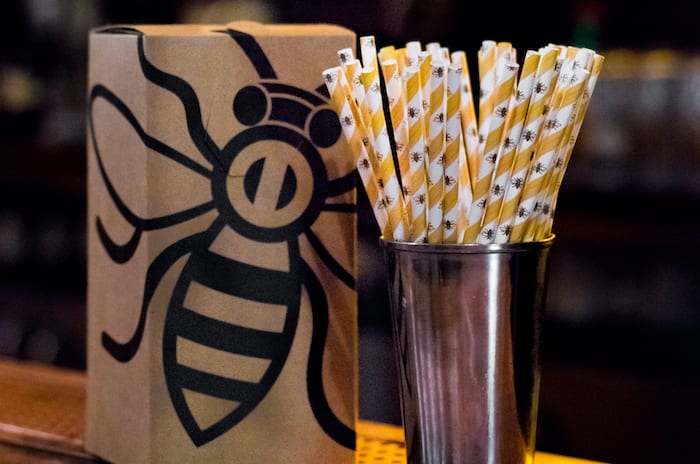
People see paper bags and straws as inherently better than plastic, but is that always the case?
“Unless you’ve done the research and the maths and you know what these things are made of and how they’re made and where they’re transported from, it’s a minefield,” says Corin.
“I mean, can it be composted or recycled? Does it actually get composted or recycled? Do we even have the facilities in Greater Manchester? ‘Plastic free’ is a great campaign, but it’s difficult to get people excited and take action when the title of the campaign is what we don’t want rather than what we do want.
“We are moving away from plastic, but what are we moving towards? And then there are loads of terrible products on the market that just have ‘eco’ written on them or leaves painted on, that just are complete greenwashing.
“When it comes to sustainability, the devil is in the detail.”
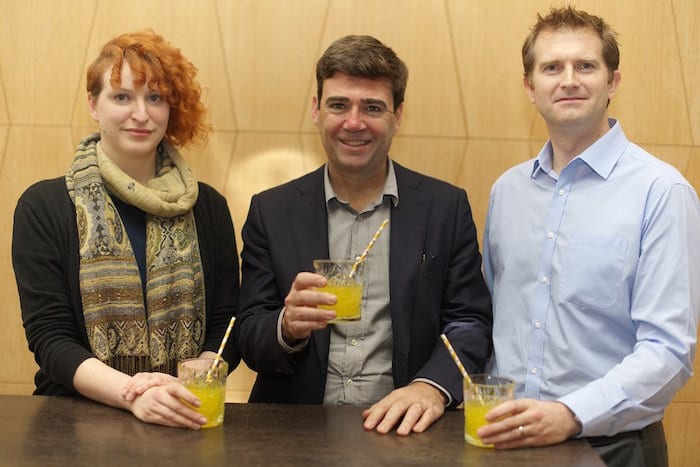
Corin is used to detail. Real Junk Food was open for 50 weeks on Oxford Street, and in that time stopped 34,339 kilos (or just over 34 metric tonnes) of food from going to waste. The pay-as-you-feel restaurant, which closed last summer, served 29,128 meals to people from all walks of life.
Open Kitchen MCR, which she launched last year, offers catering services to corporate and private clients while working with community and charity partners to offer access to not just enough food, but great food, to everyone who wants or needs it, regardless of income.
“The restaurant was always going to be a temporary home for us,” she says.
“It was the first stage in a larger experiment. Opening the catering operation was a way for us to increase our activity because you’re not reliant on people coming to you, you can get food out for them. And it was a way of us trying lots of different ideas, too.”
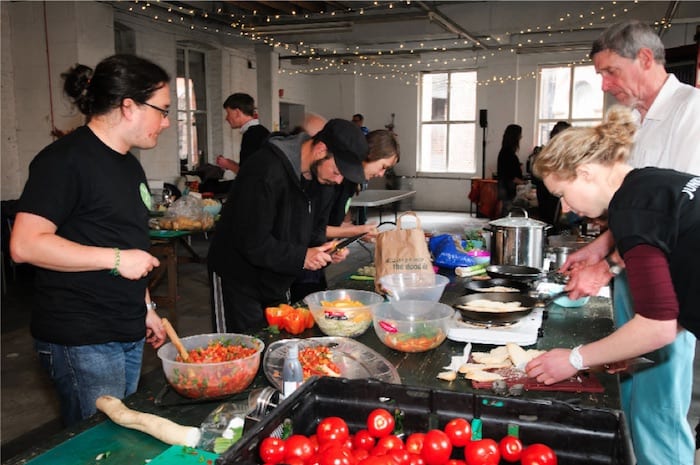
Launching Open Kitchen MCR was also a way to change the business model.
“Pay as you feel was a brilliant experiment and I’m really glad we did it, but I have to say I can’t make it stack up financially,” Corin says.
“The new operation works on more of a pay it forward model. The principles remain the same, it’s using as much waste food as we can, campaigning to stop the food being wasted in the longer term, and battling for some sort of social inclusion.
“So we are currently catering for private and corporate events and charity and community events. And we’re working with groups who are offering dignity and a warm welcome, people like Mustard Tree and Coffee 4 Craig, that are trying to get people linked up with support.”
Social inclusion is as important to Corin as sustainability, and she hopes to break down in people’s minds the “completely false” and “really dangerous” link between food waste and food poverty – a link she believes has been propagated by some big businesses.
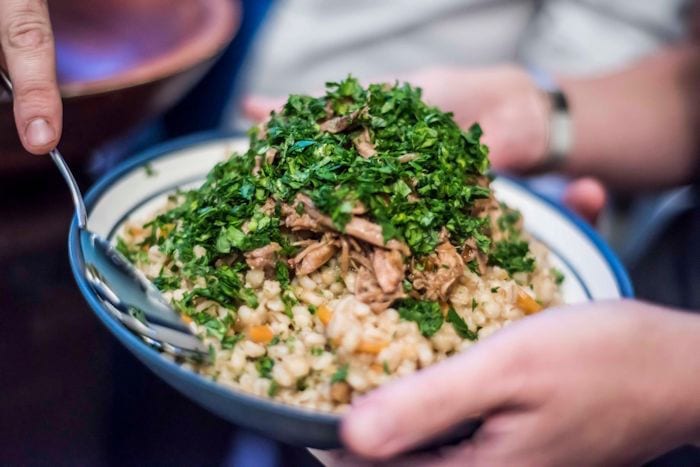
“Food waste is a massive environmental problem, and food poverty is a massive social problem. And you can’t just apply one problem to the other and sort it. We still have a completely unsustainable food system.
“In fact, calling redistribution of food waste a charitable act is actually probably getting in the way of us actually fixing our food system, because redistribution is just a sticking plaster.
“And on the social side, if our community and charity sector is completely reliant on food that would otherwise have gone to waste, covertly the message we are giving is it’s second-class food for second-class citizens. And that’s not helping anyone to recover or feel good about themselves socially.
“We just want to say that this food should not have gone to waste. I don’t care if you’re the Queen or you’re a millionaire or you’re street homeless, if this food is perfectly edible it shouldn’t matter who’s eating it. You just want to feed everyone.”
Speaking of feeding people from all walks of life, does Corin have any plans to open another cafe tackling food waste, following in the footsteps of Real Junk Food Manchester?
“The hope is that next year, we will be able to go back to the city centre with a slightly different evolution of the model,” she says.
“We would like to come back with more of a pay it forward cafe, and we are just trying to work out the kinks of that model at the moment.”
Watch this space, Manchester.
Did we miss something? Let us know: [email protected]
Want to be the first to receive all the latest news stories, what’s on and events from the heart of Manchester? Sign up here.
Manchester is a successful city, but there are many people that suffer. The I Love MCR Foundation helps raise vital funds to help improve the lives and prospects of people and communities across Greater Manchester – and we can’t do it without your help. So please donate or fundraise what you can because investing in your local community to help it thrive can be a massively rewarding experience. Thank you in advance!
Got a story worth sharing?
What’s the story? We are all ears when it comes to positive news and inspiring stories. You can send story ideas to [email protected]
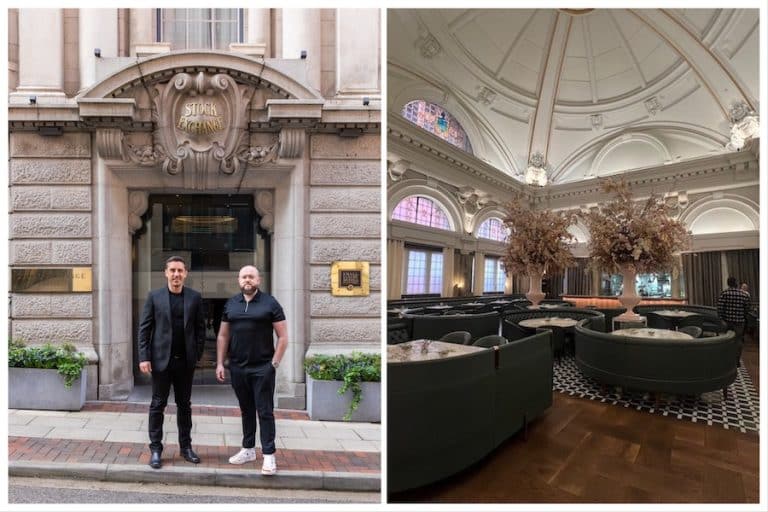
Two-star Michelin chef takes the helm at Gary Neville’s new restaurant
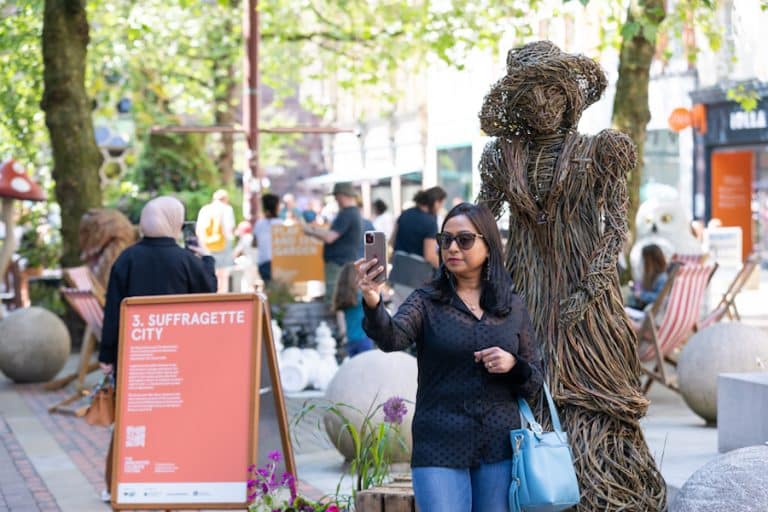
Manchester Flower Festival set to bloom this May bank holiday

Two Manchester hospitals recieve recognition for ‘world class’ cancer care
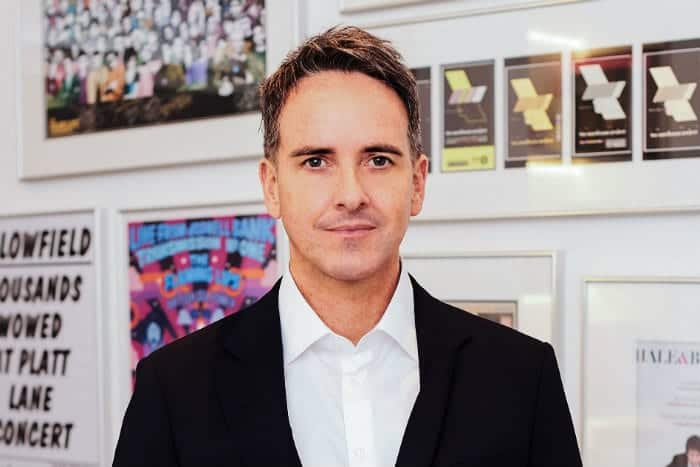
Worker Bee: Meet Sacha Lord, co-founder of Warehouse Project and Parklife Festival

Worker Bee: Meet Katie Zelem, the captain of Manchester United
